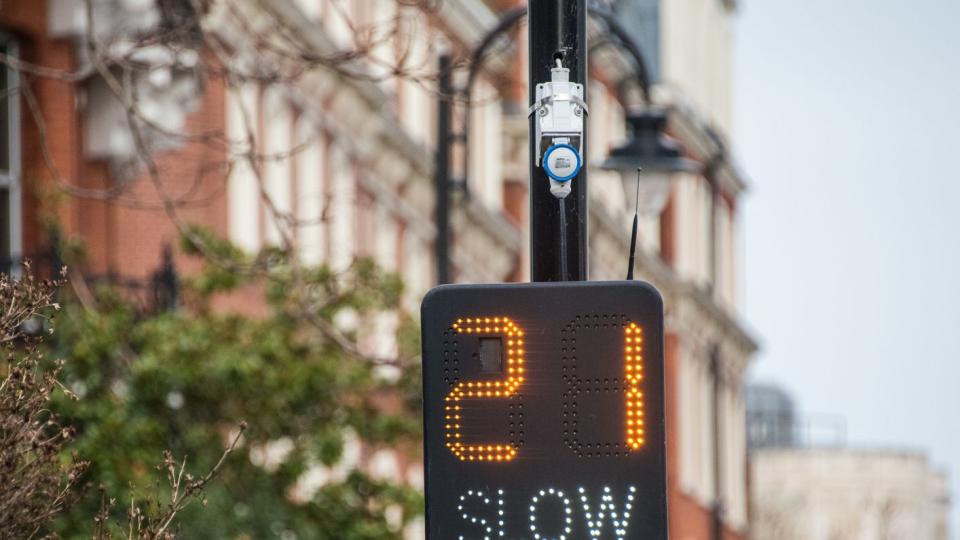About 50 Percent of Drivers 'Wouldn't Mind' Speed Limiters in Cars, IIHS Survey Says

A new survey from the Insurance Institute for Highway Safety about speed-limiting technology found that roughly half of American drivers say they “wouldn’t mind” a system that makes the gas pedal more difficult to push or restricts acceleration to combat speeding. Additionally, more than 60 percent of drivers surveyed are in favor of an audible and visual warning that would be triggered by speeding.
Speeding is a fact of life on American roadways. A 2022 report from the AAA Foundation for Traffic Safety found that about half of drivers reported driving at least 15 mph over the speed limit in the 30 days before the survey. Speeding was also a factor in 29 percent of U.S. traffic fatalities in 2022, driving regulatory agencies and lawmakers to search for a solution. Speed restriction technology has long been believed to be unpopular among Americans and has received blowback in past implementation attempts, but the IIHS survey suggests that the average driver would be more open to anti-speeding systems than previously expected.
“These findings are exciting because they suggest American drivers are willing to change how they drive to make our roads safer,” IIHS President David Harkey says.
While speed limiter technology has been on the market for several years, most versions only enforce one maximum limit, which fails to adequately address speeding on most U.S. roads. Intelligent speed assistance (ISA) systems are different—they utilize GPS, a speed limit database, and sometimes cameras to intelligently identify the posted speed limit on different roads.
The survey polled 1,802 drivers about the potential implementation of ISA systems in American vehicles. Respondents were asked about their own driving behavior and their thoughts on speeding and technology to gauge how their habits might affect their feelings about ISA. Drivers were randomly sorted into three groups that were asked about three different forms of ISA: an advisory warning, accelerator feedback that would make the pedal harder to push, and a restriction of acceleration over the speed limit.
The survey showed that drivers had a “clear preference” for advisory systems rather than more aggressive intervention on vehicle speed and features with a certain level of tolerance for speeding, the IIHS says. When respondents were asked about the acceptability of a feature with a 10 mph tolerance, nearly 80 percent of the advisory-only group agreed the feature would be acceptable, compared with over half of the other two groups.
In the groups that were asked about accelerator feedback and speed limiters, roughly half of respondents said they would want their next car to have ISA if most other vehicles had it and that it would be a good idea to require ISA technology in all new cars. However, roughly half also said that they would frequently override the feature.
“The next challenge is to encourage automakers and drivers to embrace it so we can begin saving lives,” says Harkey.
The potential for ISA in the U.S. has been discussed recently as the European Union prepares to implement its new rule requiring all new vehicles to be equipped with ISA warning systems starting July 2024. These warnings would set in when the vehicle meets the speed limit for six seconds and 1.5 seconds after the vehicle speeds over the posted limit by any amount.
Were ISA to be implemented in the U.S., drivers would have the option to switch off the technology, so the feature would only be useful if drivers would willingly opt-in. The IIHS survey shows that if ISA systems were implemented in the U.S. with the EU’s rigid standards, most drivers would switch off or frequently override the feature. The E.U. regulations provide an opportunity for U.S. regulators to learn from their example and consider design elements that could make the system more attractive to U.S. regulators.
You Might Also Like

 Yahoo Autos
Yahoo Autos 